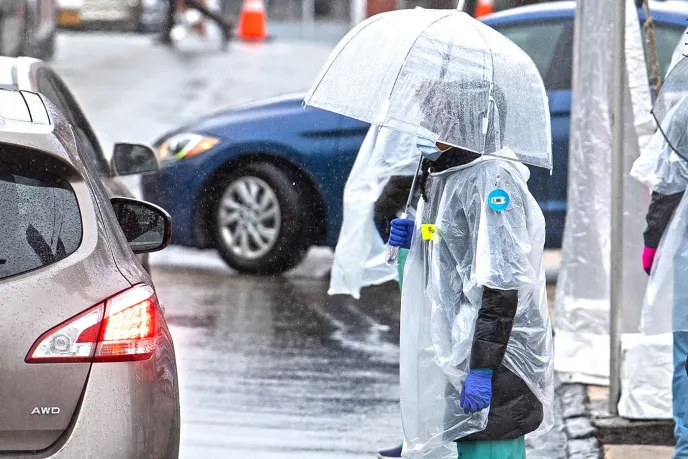covid X climate

Image courtesy of Jose F. Moreno, Philadelphia Inquirer Staff Photographer
The covid X climate project emerged in April 2020 as a rapid response to the then newly-declared pandemic of COVID-19. Originating with a group of scholars at the Penn Program in Environmental Humanities, cXc sought an immediate way to collect and share responses, research, and resources for attending to the intersections between the local and global crises of the COVID-19 pandemic and the ongoing crises of climate change. Like so many environmental injustices, the pandemic was poised to most adversely affect Black, Indigenous, and POC communities, thereby deepening the social and environmental costs borne by those already made vulnerable by oppressive structures of inequality and unequal exposure. We reached out to thinkers of all stripes—scholars, artists, activists, citizens of the world—in order to build a place-sensitive open access knowledge base and platform for informed discussion and action. Our ask? “What’s this pandemic got to do with climate change?”
Nearly three months after launching the project, we have developed a small but growing gallery of responses in the form of talking head lectures, mono- and dia-logues, essays, poetry readings, short fiction and links to other archives. We continue to invite submissions across four overlapping channels:
- cXc Tracts: place-based stories and performances of aspiration, exasperation, and resilience experienced during the COVID-19 crisis
- cXc Expertise: environmental humanities scholarship refracted through the pandemic
- cXc Activism: beyond bail-outs for carbon capitalism: activist work, mutual aid, and the struggle for environmental justice
- cXc Archive: resources, literature, links from around the world
As we witness a new COVID-19 case surge across the United States, round out a fourth week of continuous protest against systemic racism throughout the country, enter a new hurricane season in the Atlantic, and watch the beginnings of wildfire season in the American west, the questions at the heart of this project remain ever urgent. Can we coordinate responses that exceed piece-meal scrambles and instead name and seek to challenge racial capitalism, corporate wealth, and the resource grabs by which these powers are structured? How best to respond to the pandemic’s impact on precarious life, particularly in places where social and economic infrastructures are insufficient and where basic needs–housing, food security, medical care, safe drinking water, and disaster relief–often go unmet? What measures might be taken to advance the paired imperatives for justice and care? And particularly for those of us with seats in the academy, how might we build new infrastructures of knowledge and action that recognize community expertise and lift up the work of grassroots organizers rather than replicating extractivist relationships with the communities which surround us and in which we are embedded? How might we make the ‘public good’ of the academy better, more publicly?
Interested in joining the covid X climate conversation? Submit your contribution here.
Learn how to contribute to the Humanities for All blog here.